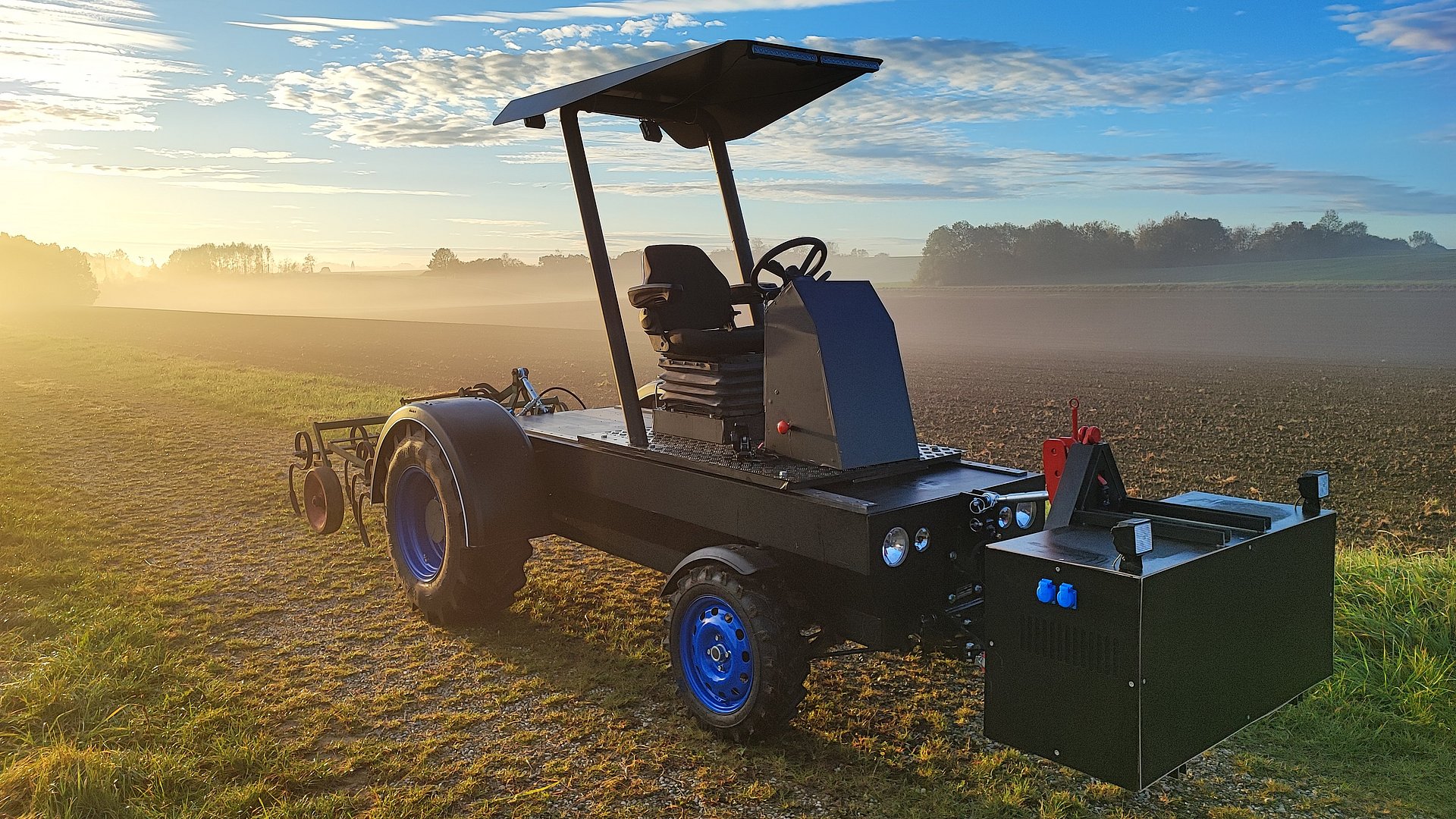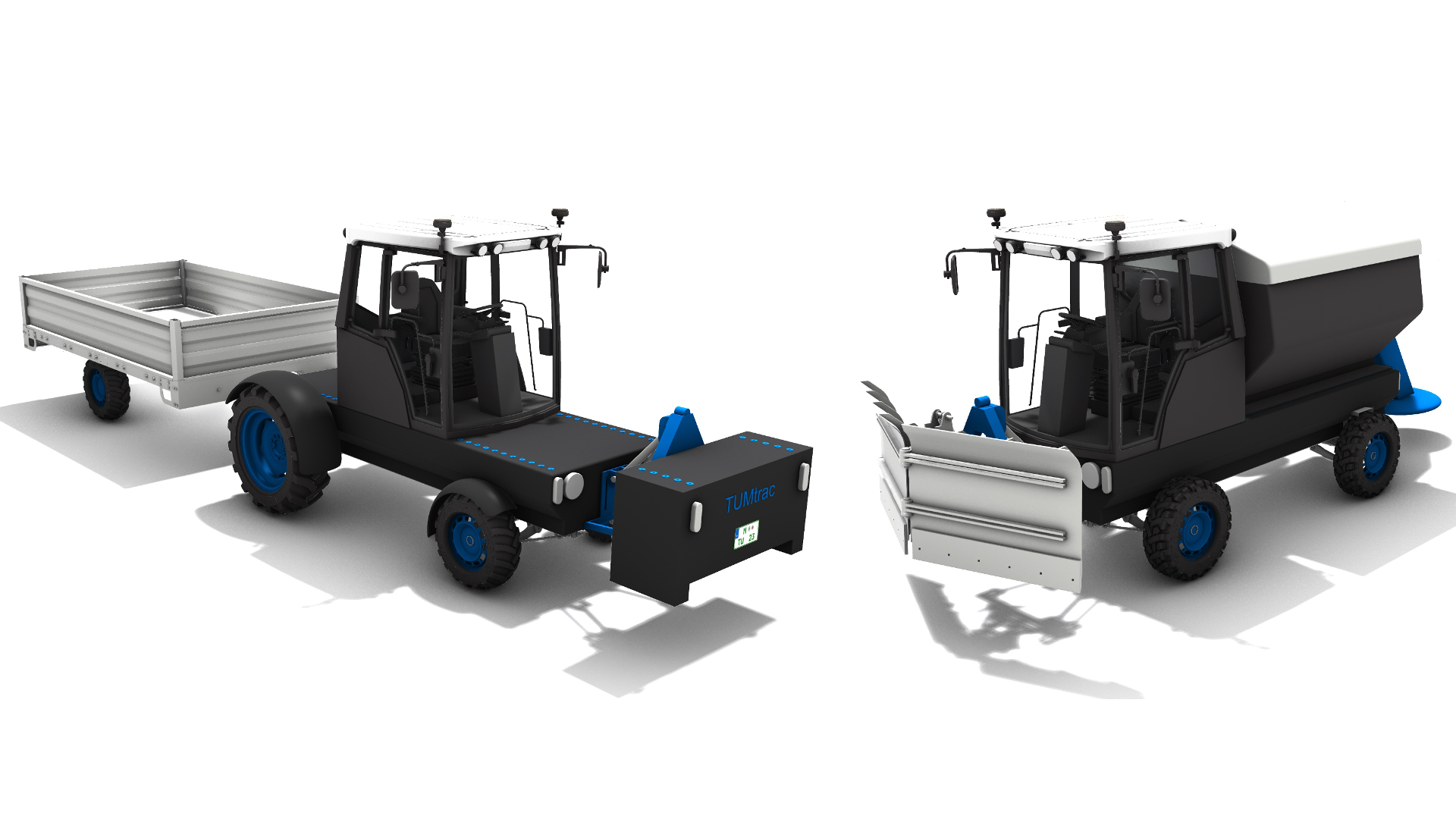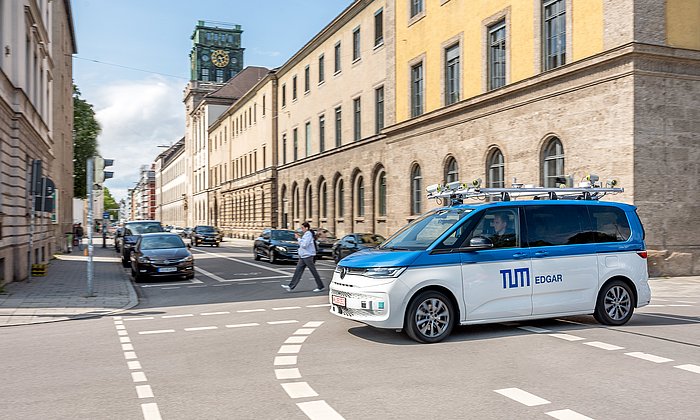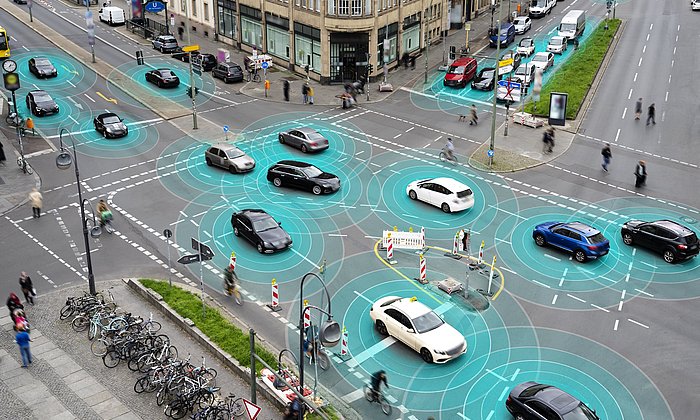Research on the electrification of agricultural machinery
New modular development kit for e-tractors

The agricultural industry is among those economic sectors most directly impacted by the consequences of climate change. Extreme weather events erode profits in the field and make planning increasingly difficult for farmers. At the same time, tractors and agricultural machinery still operate for the most part on diesel fuel. A variety of different challenges, for example cost pressure and the lack of access to technology, are making it hard for many agricultural machinery manufacturers to transition to electric drives on a broad basis. This is where the research project TUMtrac comes in. TUM researchers are developing a modular development kit for all-electric tractors. The objective is to support agricultural machinery manufacturers in the development of new tractor concepts, regardless of brand. The team is presenting one possible variant at the agricultural machinery trade fair Agritechnica.
Here the team is focusing on small to mid-sized tractors like the ones used for example in fruit farming. "We see potential for electrification primarily in tractors. These machines have to work long hours but only have to deliver a low constant output. Hop and wine growing are perfect examples. Thanks to its modular format, our tractor kit will be able to simulate and evaluate a broad range of different tractor concepts," says Korbinian Götz, director of the research project at the TUM Chair of Automotive Technology . Tractors designed with the modular kit will be particularly well suited for 1,000 and more annual hours of operation.
Modular core unit design with replaceable battery
The special thing about TUMtrac is the modular format which can be adapted to accommodate the respective individual area of application. The core functional unit presented at the fair shows how an overall concept could look in the future. The tractor is based on a standardized platform which features a replaceable battery that can be positioned at the front or rear of the vehicle, depending on the application. The battery thus serves not only as a power source, but can also be a counterweight for attachments such as mowers or snowplows.
The replaceable battery reduces the total vehicle weight, since it can be smaller than a permanently installed battery and thus the tractor carries only the amount of power it actually needs. In addition, the batteries can also be used as a kind of giant power bank, making it possible for farmers to store electricity they generate themselves using photovoltaics or wind power and use it for their own tasks. "While this is currently still a marginal topic in the passenger car sector, now we can use it in the agricultural sector for the targeted configuration of our tractor system. The replaceable battery can offer farming operations real added value in terms of more application flexibility," says Prof. Markus Lienkamp, head of the TUM Chair of Automotive Technology.

Software and hardware from a single source
In addition to hardware, the research team is also focusing on the development of software adapted to accommodate the overall concept. After entering the desired requirements, the software supports the evaluation of various different tractor concepts in terms of their cost-efficiency for use in agri-business. The holistic approach is intended to facilitate the modular format of the platform, since the challenges in the respective working environments can be rapidly captured. The researchers are thus tackling the increasingly complex working reality of the agricultural world. Constantly changing basic parameters require devices to provide more and more flexibility. Here TUMtrac can make a valuable contribution to decarbonizing the agricultural sector – around the world.
Pictures for editorial use: http://go.tum.de/270844
Research program website: http://go.tum.de/228132
Technical University of Munich
Corporate Communications Center
- Andreas Huber
- huber.a@tum.de
- presse@tum.de
- Teamwebsite
Contacts to this article:
Korbinian Götz
Project Lead TUMtrac
Tel.: +49 89 289 10497
korbinian.goetz@tum.de


